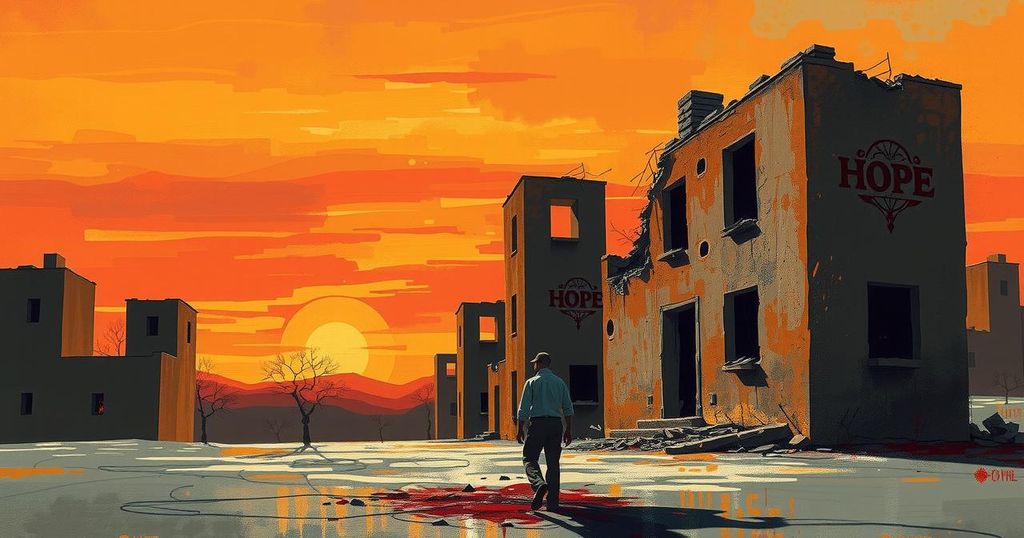In Syria, Being Wanted Transforms from Fear to a Badge of Honor
In Syria, the status of being “wanted” has transitioned from a source of fear during Assad’s regime to a badge of honor for many citizens. Individuals actively inquire about their status and openly discuss their pasts as a sign of defiance against oppression, signifying a cultural shift towards pride in surviving a brutal dictatorship.
In Syria, the perception of being “wanted” has drastically changed from a source of fear to a mark of pride. Under the dictatorship of Bashar al-Assad, millions were placed on wanted lists, often leading to imprisonment or worse for those identified. However, individuals such as Kazem Togan now find themselves discussing their status with a sense of honor.
Togan, upon returning to Syria after a twelve-year absence, quizzed a passport control agent to check if he was still on the list. The agent’s response, informing Togan of his wanted status, elicited a smile and a feeling of accomplishment. He noted, “Today, every Syrian asks as a matter of routine, ‘Was I wanted?’” This reflects how many now take pride in having been targeted by the regime.
For more than fifty years, the Assad dynasty instilled fear through a regime that tortured millions. An individual being named on a wanted list indicated that they were marked for persecution by the authorities. Yet, in contemporary times, possessing such an identification signifies bravery and resilience against a repressive regime. Those who once feared for their lives are now openly discussing their status, viewing it as evidence of their resistance to oppression.
Syrians are now turning a previous source of intimidation into public pride, as those who survived detention celebrate their experiences and openly question their status to affirm their courage. This notable shift underscores an evolving narrative of defiance in a country long ruled by autocracy.
The transformation of being “wanted” in Syria from a condition of fear to a celebrated badge of honor reveals a fundamental shift in societal values post-Assad regime. As individuals recount their past experiences, they are fostering a culture of resilience and pride among Syrians who once lived in terror. This newfound disposition reflects a collective desire to challenge oppressive histories and find strength in survival.
Original Source: www.nytimes.com




Post Comment